Search
Search Results
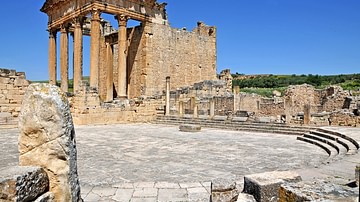
Definition
Roman Architecture
Roman architecture continued the legacy left by Greek architects and the established architectural orders, especially the Corinthian. The Romans were also innovators and they combined new construction techniques and materials with creative...

Definition
Islamic Caliphates
Caliphate (“Khilafat” in Arabic) was a semi-religious political system of governance in Islam, in which the territories of the Islamic empire in the Middle East and North Africa and the people within were ruled by a supreme leader called...

Definition
Fourth Crusade
The Fourth Crusade (1202-1204 CE) was called by Pope Innocent III (r. 1198-1216 CE) to retake Jerusalem from its current Muslim overlords. However, in a bizarre combination of cock-ups, financial constraints, and Venetian trading ambitions...
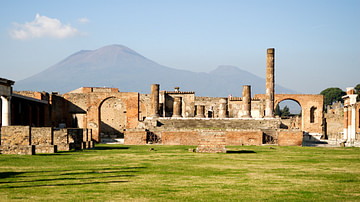
Definition
The Ancient City
In the study of the ancient world a City is generally defined as a large populated urban center of commerce and administration with a system of laws and, usually, regulated means of sanitation. This is only one definition, however, and the...
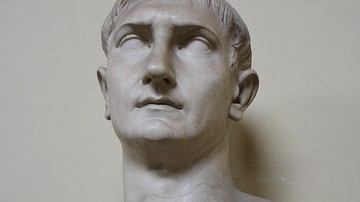
Definition
Trajan
Trajan, or Marcus Ulpius Traianus, was Roman emperor from 98 to 117 CE. Known as a benevolent ruler, his reign was noted for public projects which benefitted the populace such as improving the dilapidated road system, constructing aqueducts...
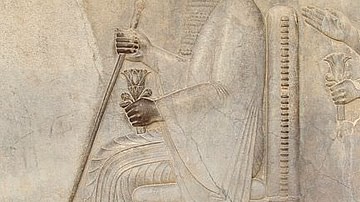
Definition
Darius I
Darius I (l. c. 550-486 BCE, r. 522-486 BCE), also known as Darius the Great, was the third Persian King of the Achaemenid Empire. His reign lasted 36 years, from 522 to 486 BCE; during this time the Persian Empire reached its peak. Darius...
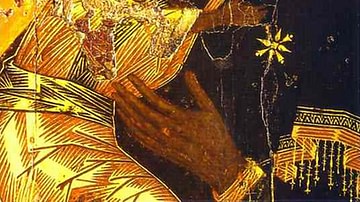
Definition
Byzantine Art
Byzantine art (4th - 15th century CE) is generally characterised by a move away from the naturalism of the Classical tradition towards the more abstract and universal, there is a definite preference for two-dimensional representations, and...

Definition
Jerusalem
Jerusalem is a major holy city for the three Western traditions of Judaism, Christianity, and Islam. It sits on spurs of bedrock between the Mediterranean Sea and the Dead Sea area. To the north and west, it tapers off to the Jezreel Valley...

Definition
Ali ibn Abi Talib
Ali ibn Abi Talib, or simply Ali, (l. 601-661 CE) was among the first Muslims, a cousin and son-in-law of the Islamic Prophet Muhammad (l. 570-632 CE), and later reigned as the fourth Caliph of Islam from 656 CE to 661 CE, when he was murdered...
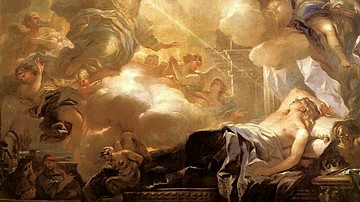
Definition
Solomon
According to biblical tradition (and some say myth), King Solomon was the third and last king in the ancient United Kingdom of Israel. Other faiths, such as Islam and Rastafarianism, also embrace the notion of Solomon as a sagacious king...